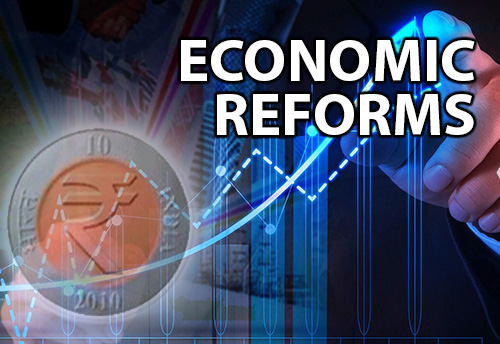Arshad Mahmood Awan
Pakistan’s path to sustainable economic recovery and poverty reduction hinges on the implementation of deep structural reforms. While the call for reform—focusing on macroeconomic stability, human capital development, climate resilience, and private sector growth—has been repeated by multilateral institutions for over two decades, outcomes on the ground remain bleak. A growing perception in Pakistan suggests that externally designed reform programmes often fail to reflect local economic realities and inadvertently deepen existing socio-economic divides.
A glaring example is the IMF’s insistence on inflation control through persistently high interest rates—an orthodox approach that neglects Pakistan’s unique economic structure. At the same time, Pakistani authorities have historically acquiesced to measures that pass the burden of inefficient governance, especially in energy and taxation sectors, onto ordinary citizens. The result has been a devastating rise in poverty. The World Bank recently reported that poverty has surged to 42.4%, and pointed out that the General Sales Tax (GST) alone contributes significantly to this increase, accounting for 7% of pre-tax household expenditures. These regressive tax practices amplify hardship for the poorest households while failing to generate long-term fiscal sustainability.
During the past week, IMF officials visited Pakistan to assess the implementation of the ongoing 36-month Extended Fund Facility (EFF). The President of Pakistan acknowledged the IMF’s support in helping avert an economic collapse. There is truth to this. The programme’s existence has been a key confidence signal to other donors and friendly nations—particularly China, Saudi Arabia, and the UAE—who have collectively rolled over $16 billion in loans this year. These rollovers are slightly above the $14 billion projected in the budget and have provided short-term relief. However, this does not signify stability. Net inflows remain negative, and the economy is still vulnerable.
The first IMF review issued a stern warning: the Debt Service Surcharge (DSS) must be adjusted, and its current cap removed by June 2025, to ensure Pakistan can meet its financial obligations. Given the country’s constrained fiscal space, the IMF stresses that operations must be fully financed through existing DSS resources, placing further pressure on the federal budget.
Finance Minister Muhammad Aurangzeb had initially indicated that budget finalisation would follow week-long discussions with the IMF. Planning Minister Ahsan Iqbal announced a June 2 budget presentation, which has since been delayed to June 10. The delay underscores unresolved tensions between Pakistan’s fiscal priorities and IMF demands. Among the points of contention are: the government’s desire to reduce tax burdens on salaried individuals (a key IMF revenue target), proposed reductions in electricity rates assuming future cost declines, and reliance on external borrowings that may not materialise due to fragile investor sentiment. These sticking points are critical, as they shape both the short-term fiscal framework and long-term development trajectory.
Domestic economists have long criticised the overreliance on indirect taxation—especially sales tax—as a lazy but politically convenient approach to revenue collection. While easy to administer, such taxes are inherently regressive and disproportionately impact the poor. Despite this, successive budgets have shifted tax burdens from the wealthy to the working and lower-middle classes. In parallel, government expenditure remains skewed in favour of elite-dominated sectors, reinforcing income inequality.
Following India’s recent aggression and Pakistan’s robust defence response, it is also expected that defence spending will rise. While necessary from a security standpoint, this will strain fiscal resources further unless balanced by targeted cuts or revenue increases elsewhere. Unfortunately, Pakistan’s current economic framework leaves little room for manoeuvre.
Please subscribe to the YouTube channel of republicpolicy.com for quality content.
A fundamental rethink is needed.
Reform must begin by reversing elite capture—where budget decisions serve the interests of a few rather than the many. This entails curbing wasteful subsidies, improving the tax structure to include the wealthy and under-taxed sectors (such as real estate and retail), and reorienting expenditure towards human development, agriculture, and SME support.
The government must also adopt a more pragmatic approach in its dealings with multilaterals. IMF programmes must be tailored to Pakistan’s structural constraints and development needs, not imposed as one-size-fits-all solutions. This requires capable negotiation, rooted in local evidence and data—not blind compliance. Programmes must be people-centred and growth-focused, not merely geared toward fiscal consolidation.
Moreover, any strategy must integrate climate resilience and sustainable energy transitions. Pakistan’s vulnerability to climate change threatens long-term productivity, food security, and public health. Reform efforts must therefore go beyond revenue-generation and include climate-smart investments and infrastructure development.
Finally, private sector growth—especially SME empowerment—needs more than lip service. Financial inclusion, access to credit, and ease of doing business remain serious challenges. Without removing these barriers, productivity and employment will continue to lag behind regional peers.
Pakistan cannot afford another lost decade of stalled reforms and populist economic management. The current moment—despite its pressures—offers a rare opportunity to reset. But that requires courage from leadership, coherence in policy, and a commitment to equitable development. It’s time to stop passing the cost of reform to the poor and begin designing a system that shares both the burdens and the benefits of economic recovery.
















